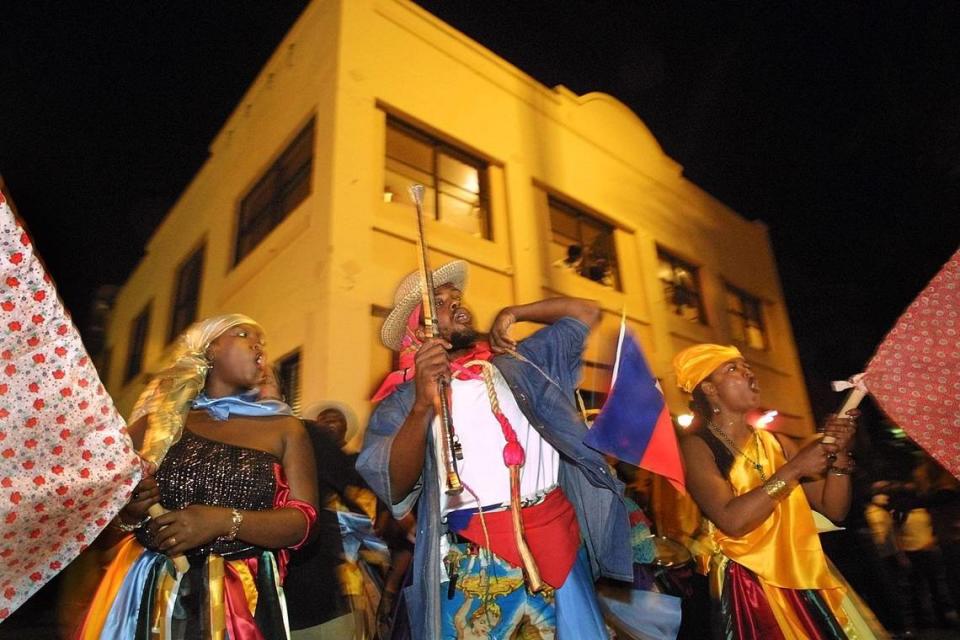Filmmaker and founder of Haitian restaurant Tap Tap, Katharine Kean dies at 84
When it opened in South Beach in 1994, Tap Tap Haitian restaurant arrived in an explosion of sound and color. There was art on the walls and music in the air, griot and soup joumou on the tables, political debates on many tongues. Tap Tap wasn’t only a place to eat. It was the heart and soul of a community that longed for a spot to gather and celebrate.
And when impromptu parades broke out or patrons rose as one to dance to beats they could not resist, founder Katharine “Keke” Kean sat at the far corner of the bar, a glass of wine in her hand, smiling at her homage to the beauty of Haiti.
A documentary filmmaker, artist and activist, Kean, 84, died Tuesday morning in her New York home after a five-year struggle with cancer. Until the end, friends said, she hoped to revive her beloved Tap Tap, which closed in 2019.
“Even after it closed, she wanted to talk about the future of Tap Tap, how she could move it to Little Haiti,” said Leonie Hermantin of Sant La Haitian Neighborhood Center. “Even through her illness, she was saddened that there was not a comparable destination in Little Haiti. She was thinking about ways in which she could move it to Little Haiti to supplement the cultural complex. That was her dream to the end.”
Such devotion is understandable, because Tap Tap — named for the brightly painted trucks and buses used as taxis that are found on the streets of Haiti — meant so much to the community. With the development of the Little Haiti Cultural Center years still away, it celebrated the Haitian culture while making a difference. Unsold food often fed the homeless. Artists were nurtured. And Haitian American kids learned to appreciate their heritage.
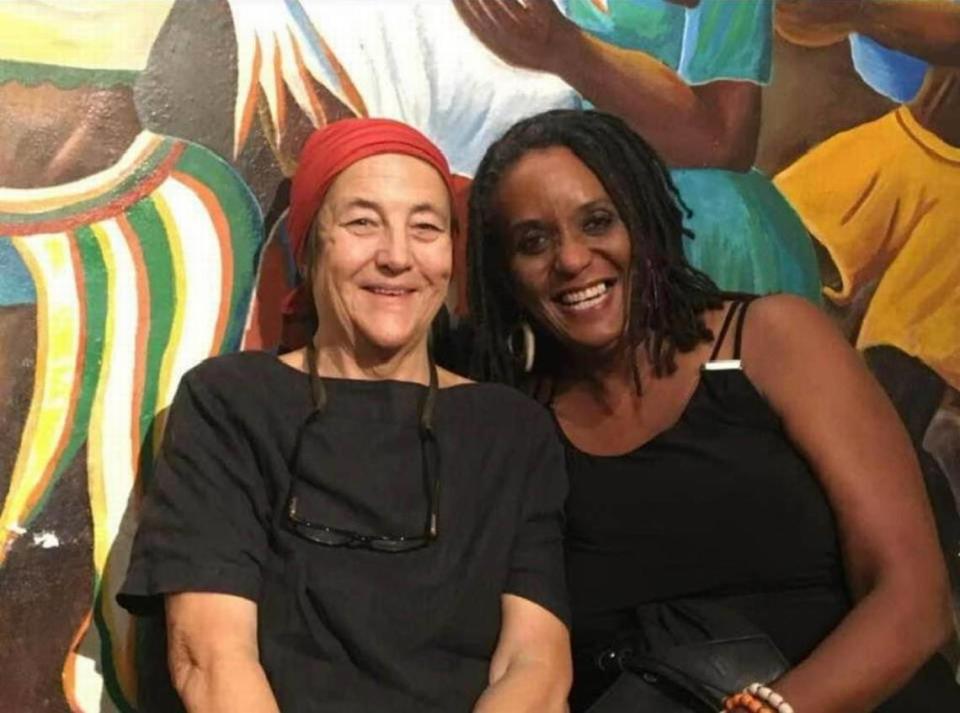
Gary Sanon-Jules, who worked as a server and later became a general manager of Tap Tap, said the restaurant is an “amazing legacy.”
“I remember walking past the restaurant when it was being built,” he said. “As a Haitian American, I was very proud of what was done there. It was so representative of my culture. But you can’t call Keke a restaurateur — she wouldn’t want that. She built this for the Haitian community. She wanted a place that represented the positive things that were going on in Haiti at the time.”
Kean wasn’t interested in commercialization, resisting his suggestions to create a website or Facebook page for Tap Tap, Sanon-Jules said.
“She stayed true to her mission,” he said. “She wanted Haitian people to know this was their place.”
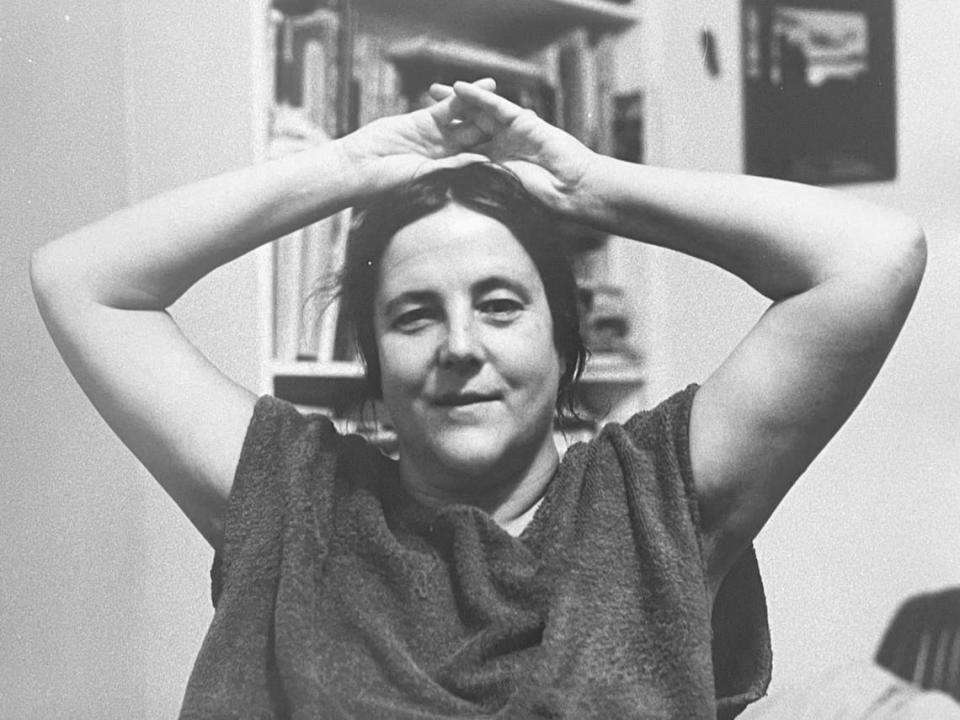
Kean was born on March 28, 1939 in New York City, and after attending prep school in Connecticut, she attended Wellesley College in Boston and later Bard College in Annandale-on-Hudson. After college, she moved to Florence, Italy, which became her base for many years as she collaborated on film and theater projects.
After Jean-Bertrand Aristide was elected president of Haiti in 1991, she and a team planned to send a film crew to the island to document the growing artistic movements. But by the time the crew arrived, a military coup had ensued. The volatile period that followed resulted in the documentary “Killing the Dream,” which aired on nationally on PBS. Her followup film “Rezistans,” released with a Kreyol title, followed the history and culture of Haiti.
The experience helped cement Kean as one of the deposed president’s biggest defenders; she considered him a friend and never wavered with her support. In one legendary Miami story, she once threw out diners who arrived at Tap Tap wearing shirts protesting Aristide.
“I disagreed with her at the time,” Hermantin said. “I told her I thought a democratic Haiti was about having diverse opinions. But she was very authentic about her beliefs and what Tap Tap should represent. . . .she admired Aristide’s vision for Haiti and was uncompromisingly supportive to the end.”
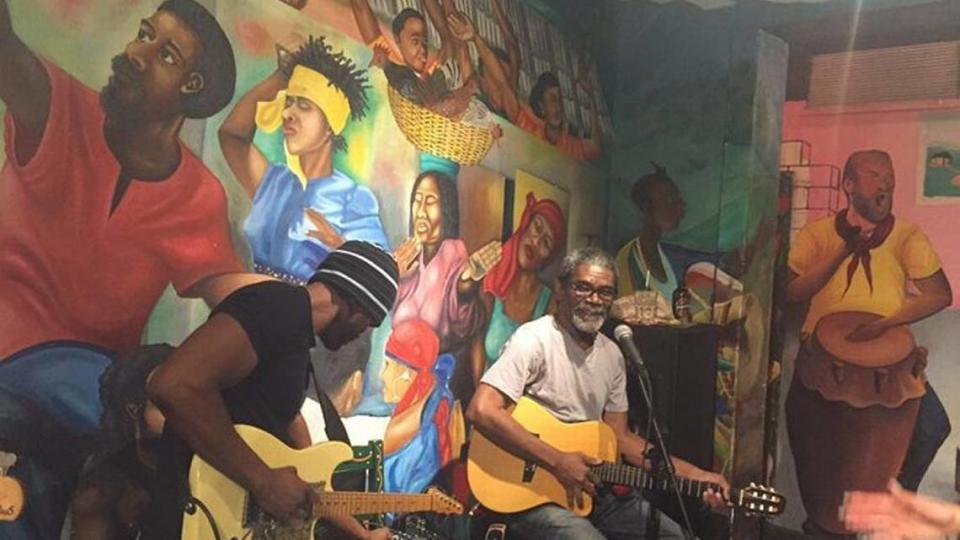
Kean also backed community leaders and the arts. She offered the use of Tap Tap’s upstairs rooms to groups that needed to hold fundraisers. Haiti’s famous protest singer Manno Charlemagne, who died in 2017, moved into an upstairs apartment and performed with a band every Thursday and Saturday night. Rara Kuyu was an artist-in-residence at the restaurant and painted tables and chairs and the famous Tap Tap tap-tap parked outside the restaurant.
Artists were nurtured, and so were famous Marxists.
“Ben Dupuy was always sitting in the corner of the bar,” said journalist Kim Ives, who met Kean in 1991 and became one of the directors of Tap Tap. “He had a chair named after himself. Tap Tap was a crossroads.” Ives wrote in his definitive obituary that Kean had also discovered and supported Haitian vodou flag artist Myrlande Constant, whose work was the subject of an exhibition at UCLA’s Fowler Center in Los Angeles.
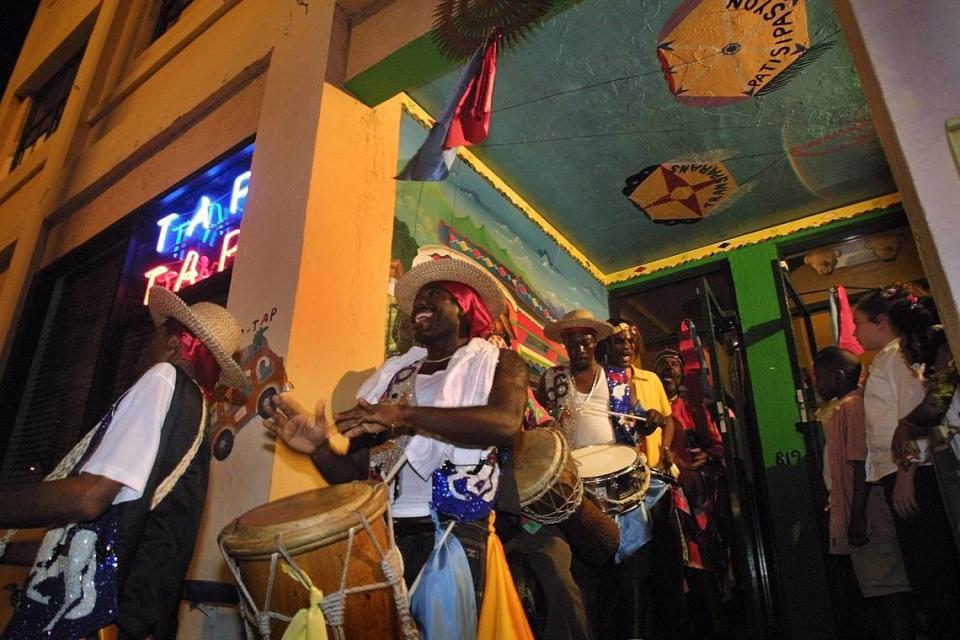
The legacy of Tap Tap will remain one of Kean’s greatest works, Ives said.
“It was where you would take your mom for her 80th birthday or where you would do a communion dinner,” he said. “The fact that it wasn’t in Little Haiti made it even more special. It was a real phenomenon for the community. That was Keke’s contribution to history, to humanity. It really was the culmination of her life’s work as a real Renaissance woman.”
A viewing and funeral will be held from noon-3 p.m. on Aug. 5 at Guarino Funeral Home on Flatlands Avenue in Brooklyn. Ives said a Miami celebration of Kean’s life is being planned for September.
